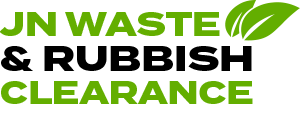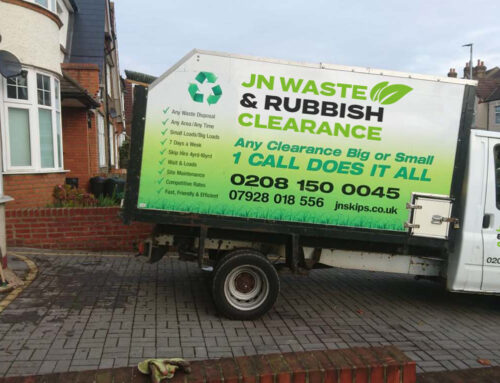When old ways of doing things meet digital transformation
Skip rental and garbage management were done by hand, from booking skips to sorting trash. However, the industry is experiencing a digital revolution, making processes more efficient and eco-friendly. JN Waste is a leader in Rubbish Removal in Croydon, Rubbish Collection in Bromley, and Kingston. They are at the forefront of this change, using cutting-edge technologies to change how waste is managed and processed completely.
How technology has changed skip hire
- Systems for booking and managing
- With the rise of online booking systems and mobile apps, renting a skip has become much more manageable. These digital platforms allow customers to plan pick-ups, manage their accounts, and make payments online. This makes things much easier for users and more efficient for businesses. When used by companies like JN Waste, these tools cut down on administrative costs and raise customer happiness.
- Getting the best routes and logistics
- Using GPS and advanced software to find the best routes has changed how skip-hire companies handle logistics. With these technologies, skip lorries can be precisely tracked, and paths can be optimised in real-time to avoid traffic jams and save fuel. This means customers get better service, decreasing the company’s carbon footprint.
- Tools for Engaging Customers
- Technologies that make real-time tracking possible and improve customer communication are changing how people work in the waste management business. Customers can now check on their skip rental progress and get phone updates. This makes it easier for service providers and customers to be open and trusting with each other.
Improvements in technologies for recycling and sorting trash
- Automatic Systems for Sorting
- AI and robotics are changing how trash is sorted by automating the process of separating recycling from regular trash. These systems use sensors and machine learning algorithms to quickly and accurately sort and identify different types of materials, much faster than a person could. This makes recycling more efficient and accurate.
- Better methods for recycling
- New developments in recycling technology are raising the quality of reclaimed materials and the rate at which they can be recovered. Thanks to methods like optical sorting and improved screening processes, more materials can be recovered and used again, supporting a more environmentally friendly way of managing resources.
Using data analytics to handle waste
- Using data to make better operational decisions
- When they use data analytics in waste management, companies can collect and analyse vast amounts of practical data to make better decisions. Data analytics helps businesses run more efficiently and effectively by giving them insights into things like tracking the amount and types of waste they produce and looking at trends in customer behaviour.
- Case studies of good ways to use data
- This technology is beneficial in the real world. For example, data analytics can be used to find the best collection times based on past data about how much trash was made. These case studies show how data-based tactics can help waste management cut costs and improve service.
Effects on the Environment and Longevity
- Using technology to lessen the damage to the environment
- New skip-hire technologies and waste handling make these services more efficient and have a much smaller environmental effect. Technology makes better climate practices possible by improving recycling processes, finding the best ways, and lowering the need for landfills.
- Sustainability Activities Made Possible by Technology
- Digital tools help with better trash tracking and resource management, ensuring that environmental rules are followed and supporting sustainability goals. Technologies like fleets of electric vehicles and processing plants that use less energy make waste management even better for the Earth.
Problems and Hopes for the Future
- Dealing with Problems in Digital Adoption
- There are clear benefits to using digital technologies in skip-hire but also some problems. For example, money must be spent on new systems and staff training. Data security and privacy problems are also still a cause for concern.
- Predictions about how technology will change in the future
- The future will be bright, with fully self-driving trash trucks and more intelligent systems that sort trash based on AI. These make waste management even more effective and environmentally friendly.
Summary
Using skip rental and garbage management technology has many benefits, such as making operations more efficient and protecting the environment. As a leader in its field, JN Waste is dedicated to using these technologies to give its customers better service while having less of an effect on the Earth. The industry has a clear call to action: keep coming up with new ideas and use new tools to deal with the problems in modern waste management.





